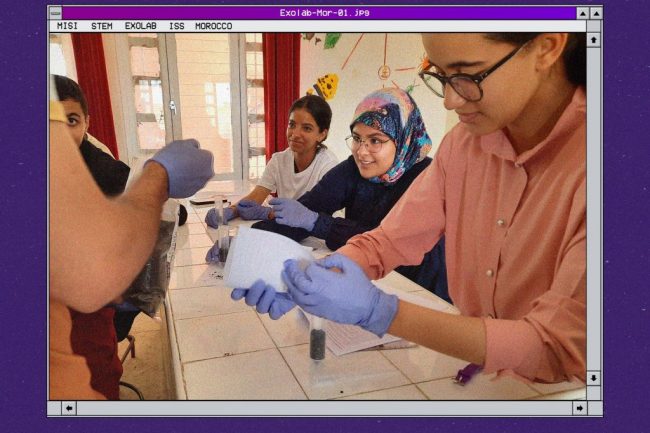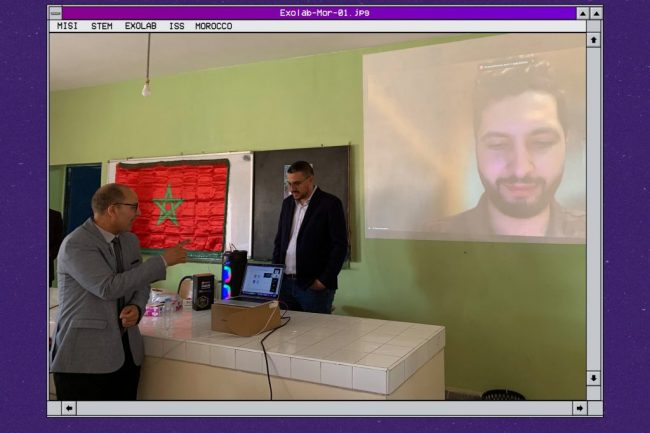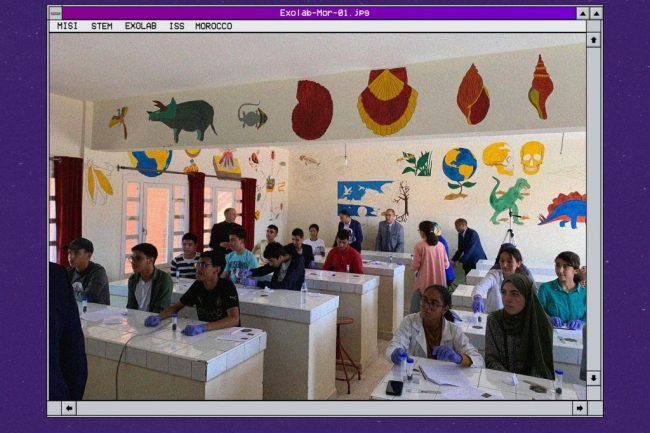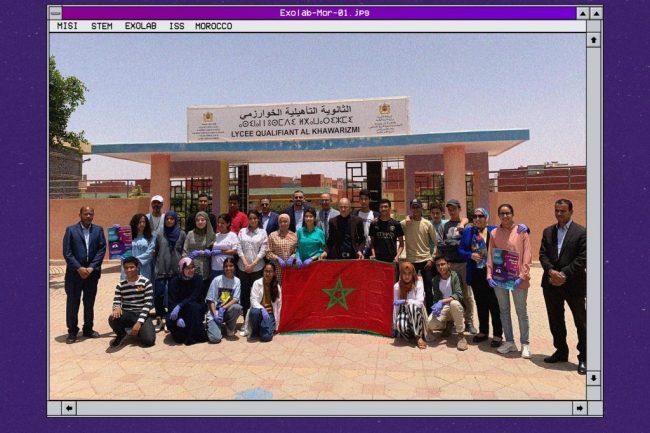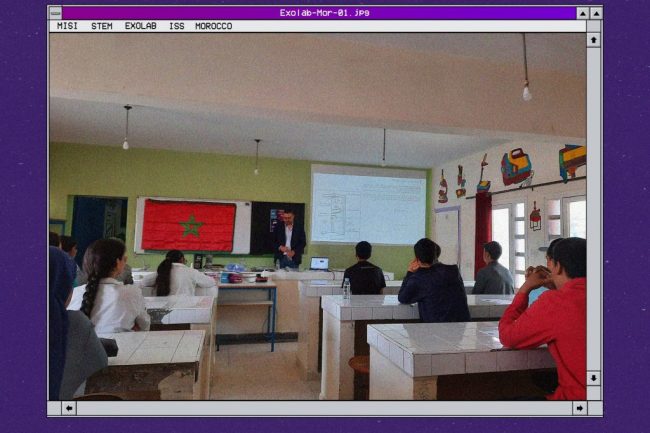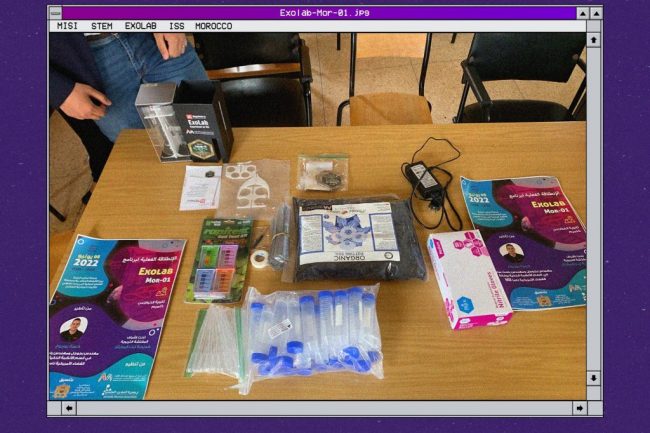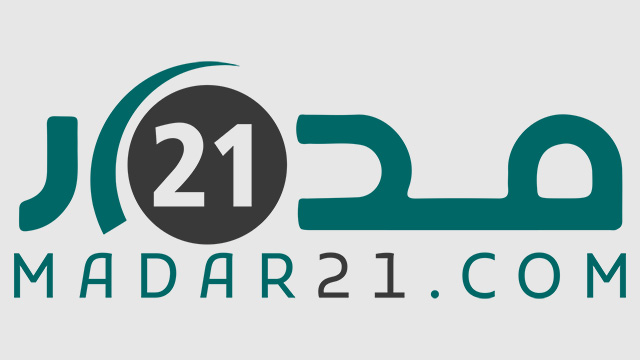Exolab-Mor-01
ExoLab-Mor-01: Engaging Moroccan High School Students in Space Science
The Moroccan Initiative for Space Industry (MISI) and the Scientific Morocco Association, in collaboration with the Regional Academy of Education and Training, Guelmim-Oued Noun and our partner Magnitude.io, launched the scientific project ExoLab-Mor-01 for Moroccan high school students. This initiative aims to spark students’ interest in space science and develop their research skills using innovative technology.
The ExoLab combines an LMS with a school kit that measures & compares real-time data with an International Space Station experiment on plant growth.
The same device that is sent to the ISS in October 2022 is the same device that schools used in their classrooms.
As an internet of things device, students can access the experiment from school or their home, complete lessons on the LMS as well as join a global community of schools!
Project Overview:
ExoLab-Mor-01 is a joint project between two high schools in Guelmim, El Khawarizmi and Bab el Sahra, involving more than 40 students. The students were given the opportunity to work with an ExoLab box, a smart plant growing technology equipped with sensors and cameras that can monitor various factors affecting plant growth, such as CO2, humidity, temperature, and light. The experiment focused on the growth of Alfalfa plants, allowing students to compare their results with those obtained in other parts of the world and even on the International Space Station (ISS).
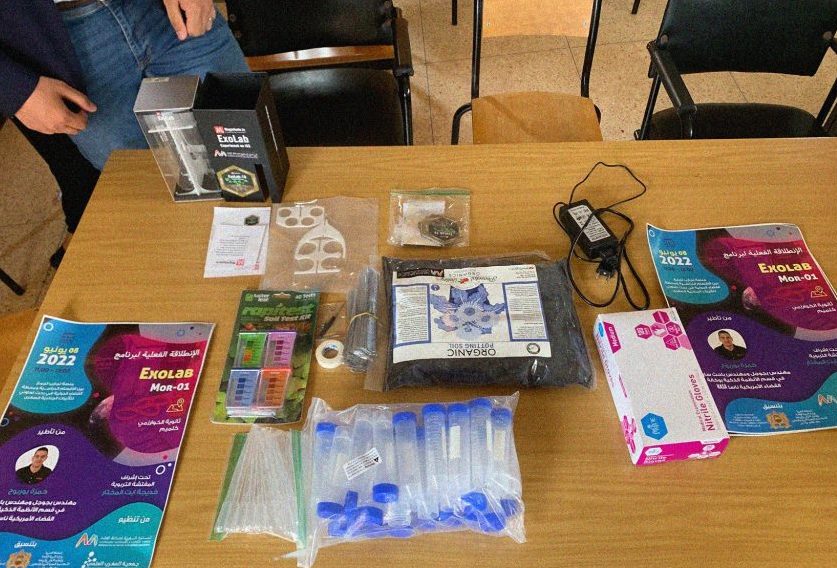
Key Milestones:
- June 2022: The project was launched in both high schools with the support of MISI educators and officials from the academy. Students were briefed on the experiment and attended seminars on space sciences and experimental concepts.
- June 2022: A pedagogical follow-up meeting was held to address any issues encountered by the students during the course and experiment.
- August 2022: ExoLab-Mor-01 was presented at the Race2space camp, showcasing it as a new method of introducing space science to schools.
- September 2022: MISI team members attended the 73rd International Astronautical Congress in Paris, where they presented a paper on ExoLab-Mor-01. The publication was selected among more than 4700 applications (187 out of 4700).
- October 2022: ExoLab-Mor-01 joined the Opportunities for Youth in Africa (OYA) program, a joint initiative by the United Nations Industrial Development Organization (UNIDO) and the Food and Agriculture Organization (FAO).
- November 2022: MISI hosted two live streams during the launch of the Dragon supply spacecraft who took Exolab to the ISS, featuring the Science communicator Najib El Mokhtari, also known as “Moroccan Science Guy.”
- December 2022: Students participated in a magnitude live: Carbon Farmer, with special guest Jacob Torres, a Space Horticulturalist from NASA.
Media hits:
The project has gained media attention from various outlets. The dedication of the MISI team and their commitment to STEAM education has been recognized through their work on the ExoLab program.

